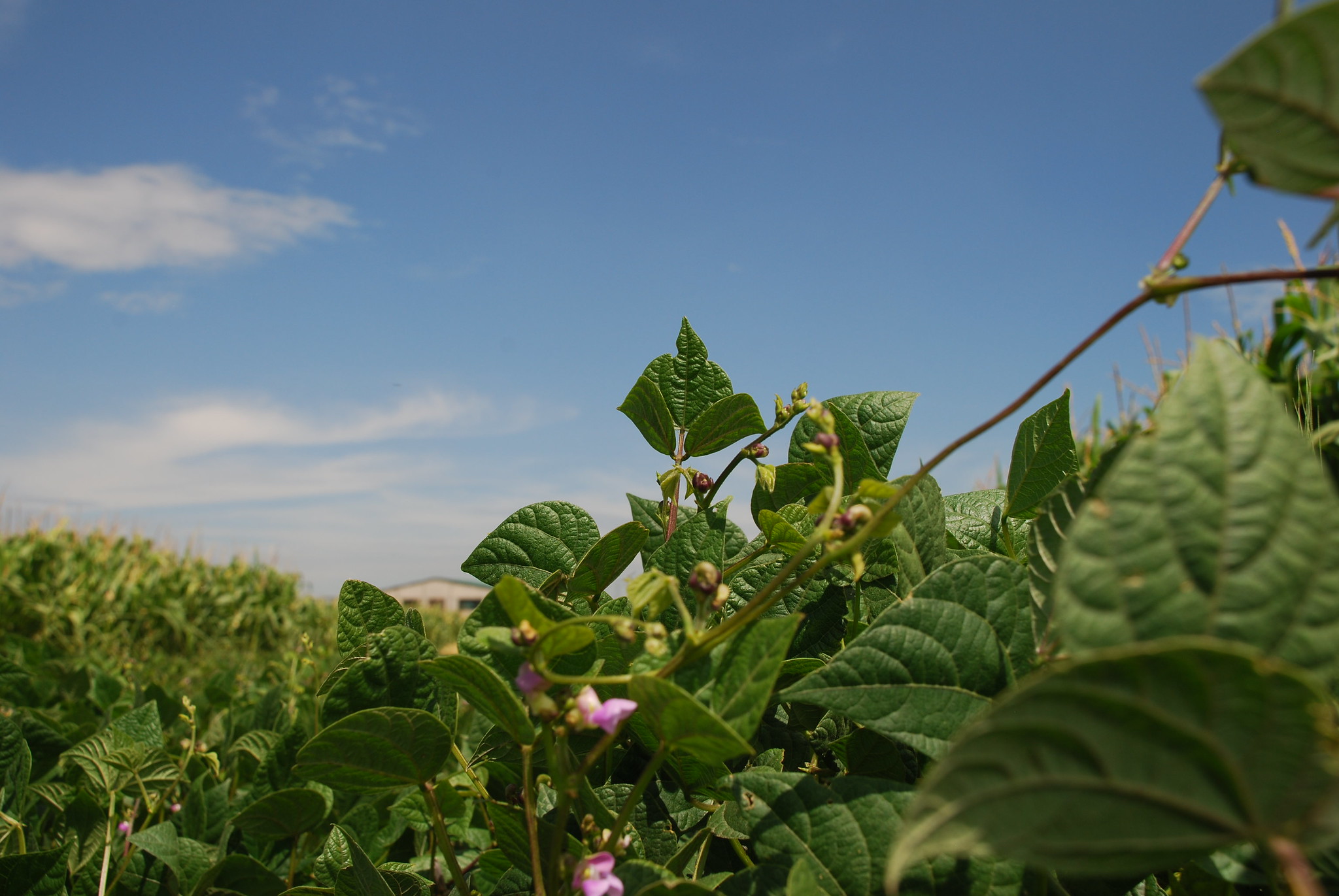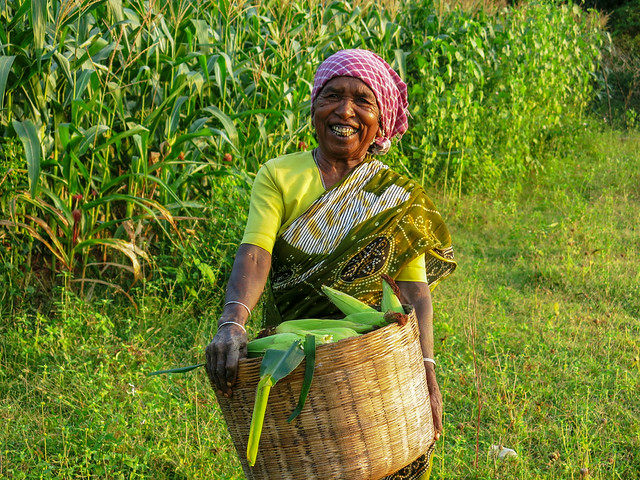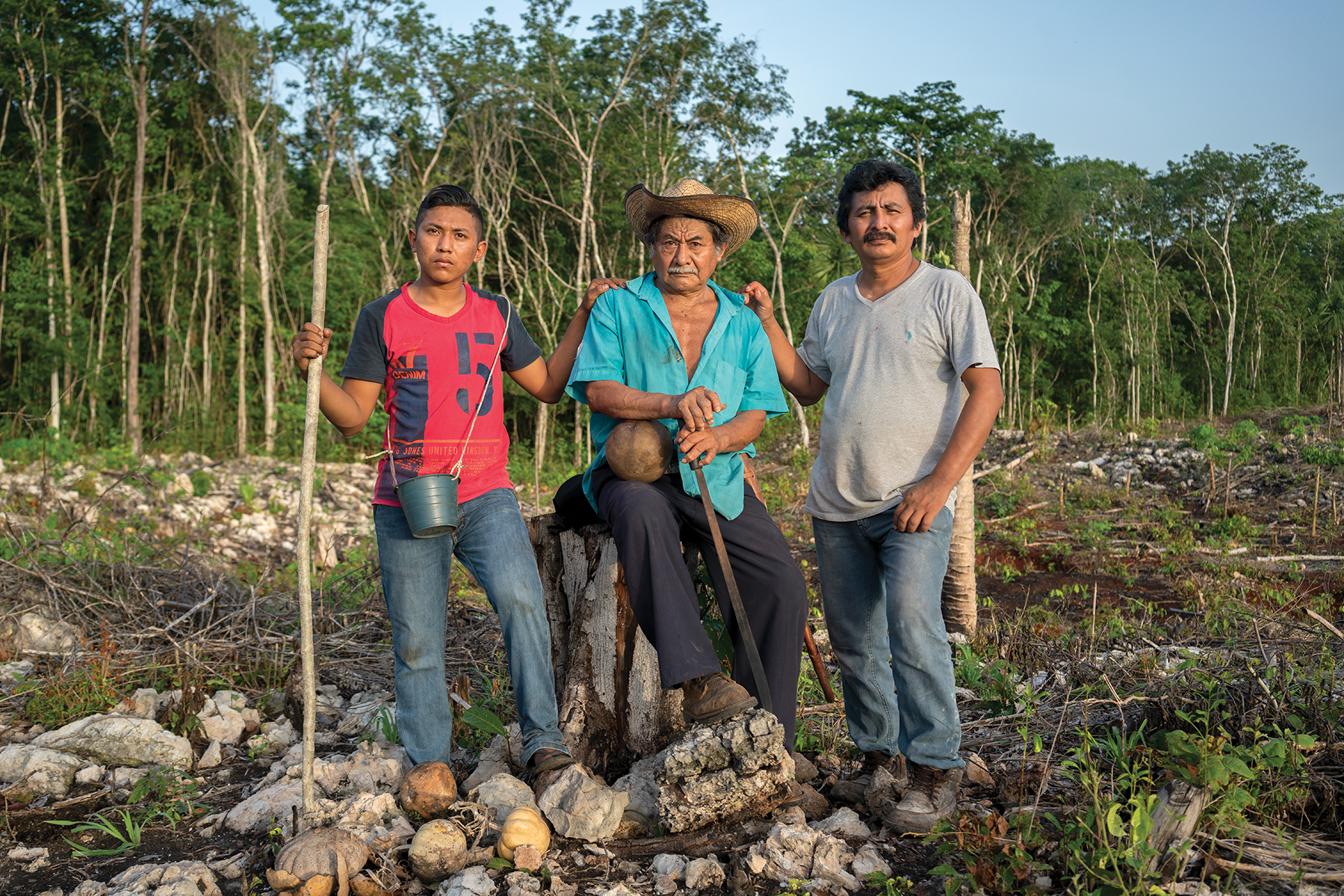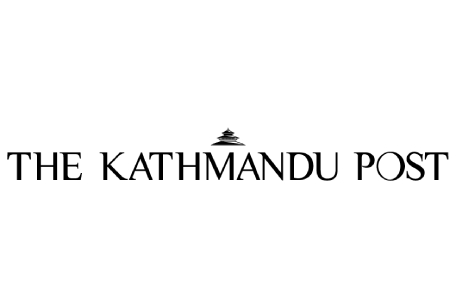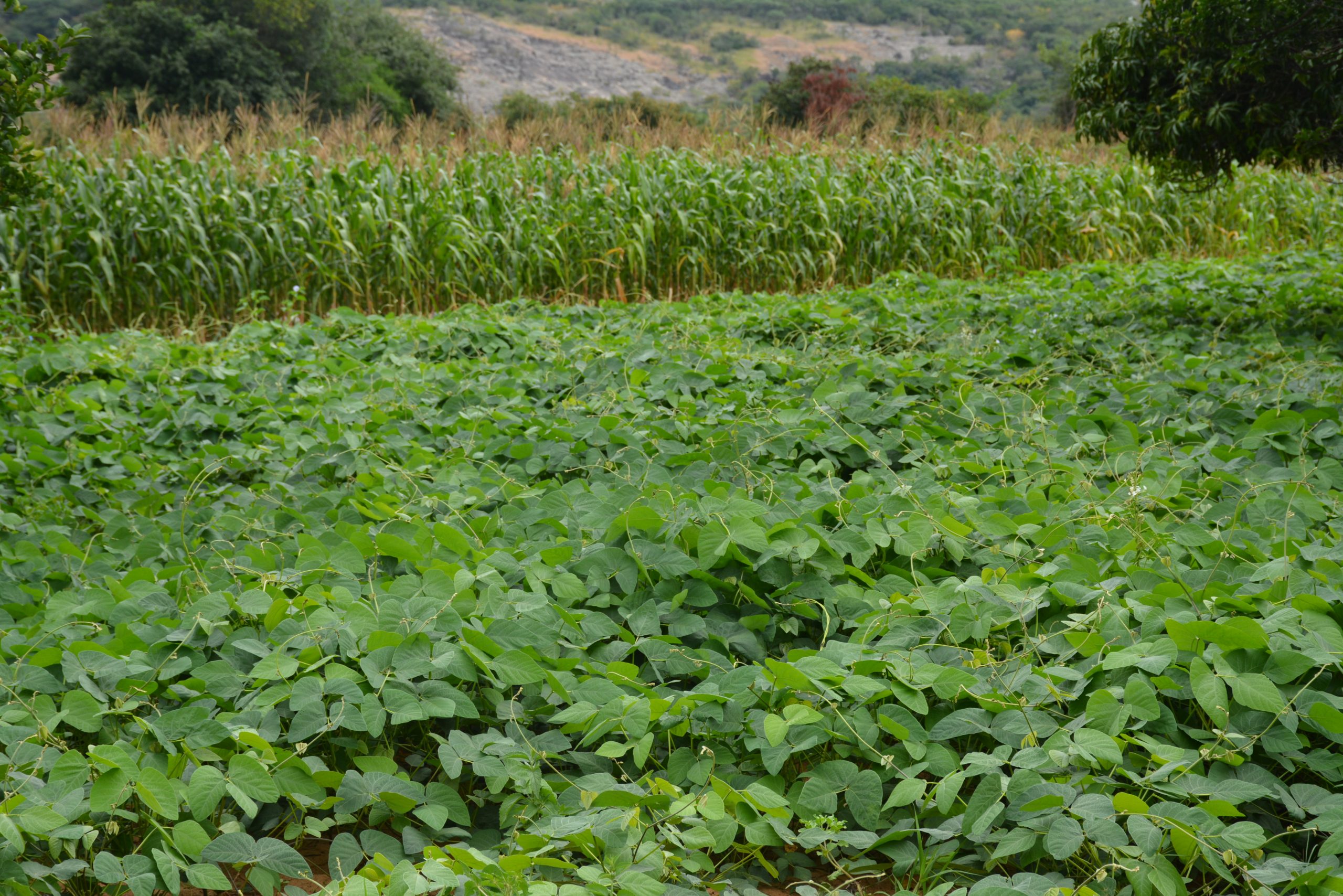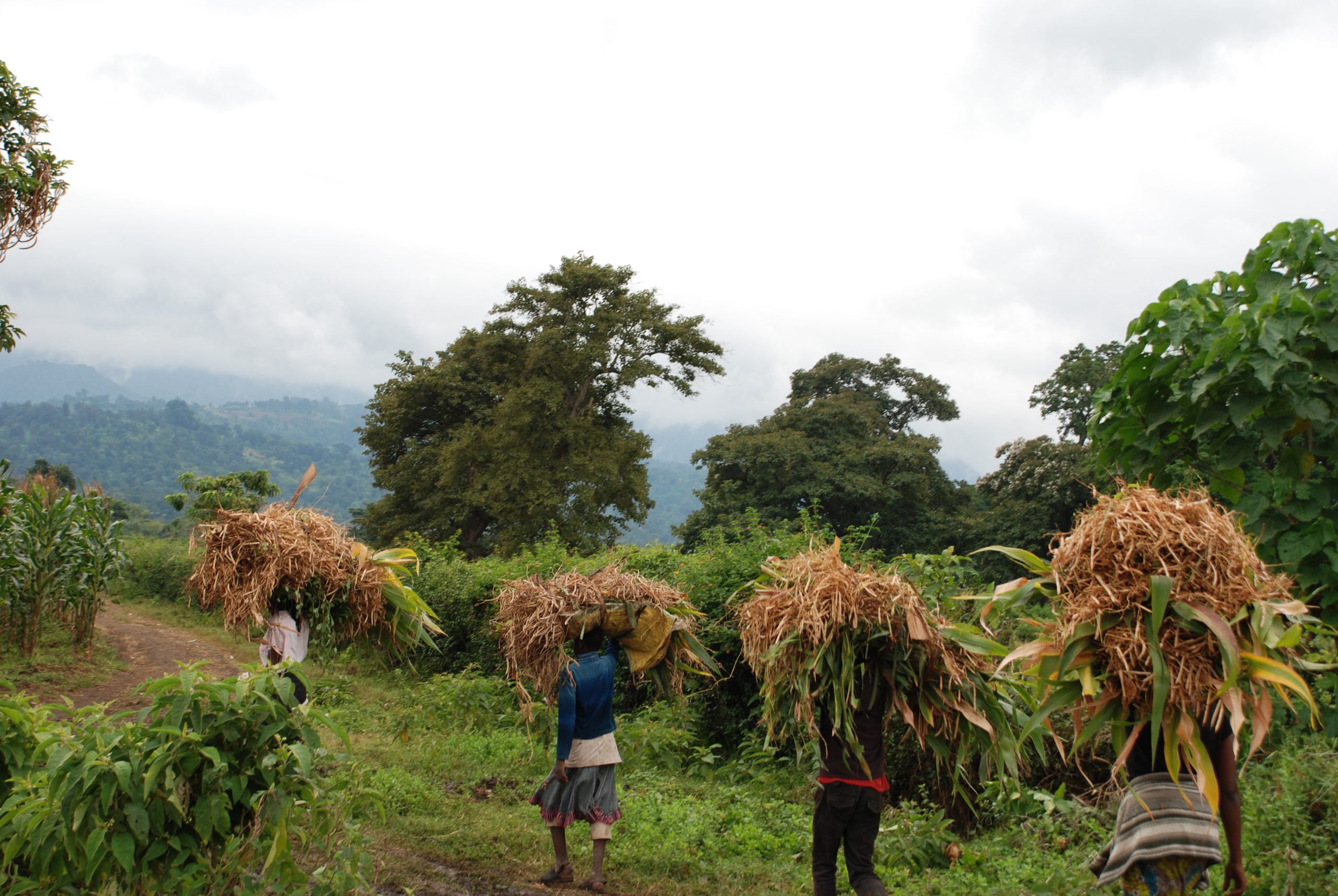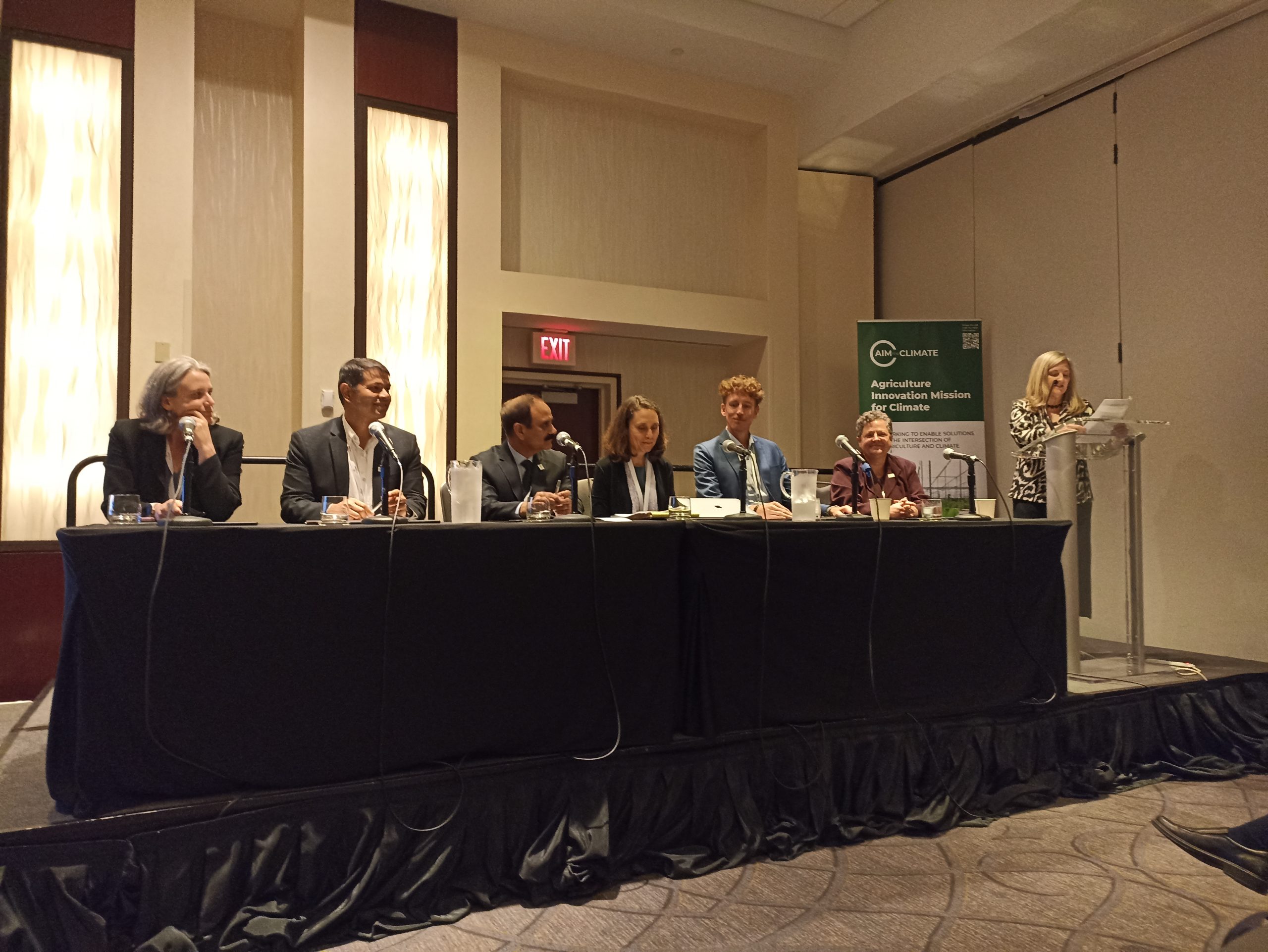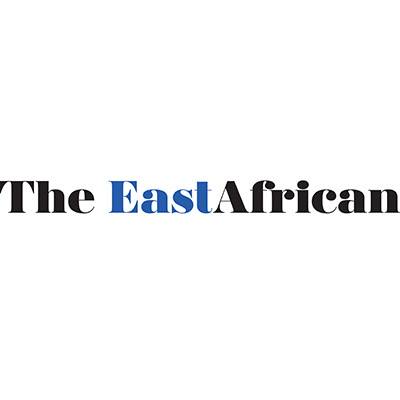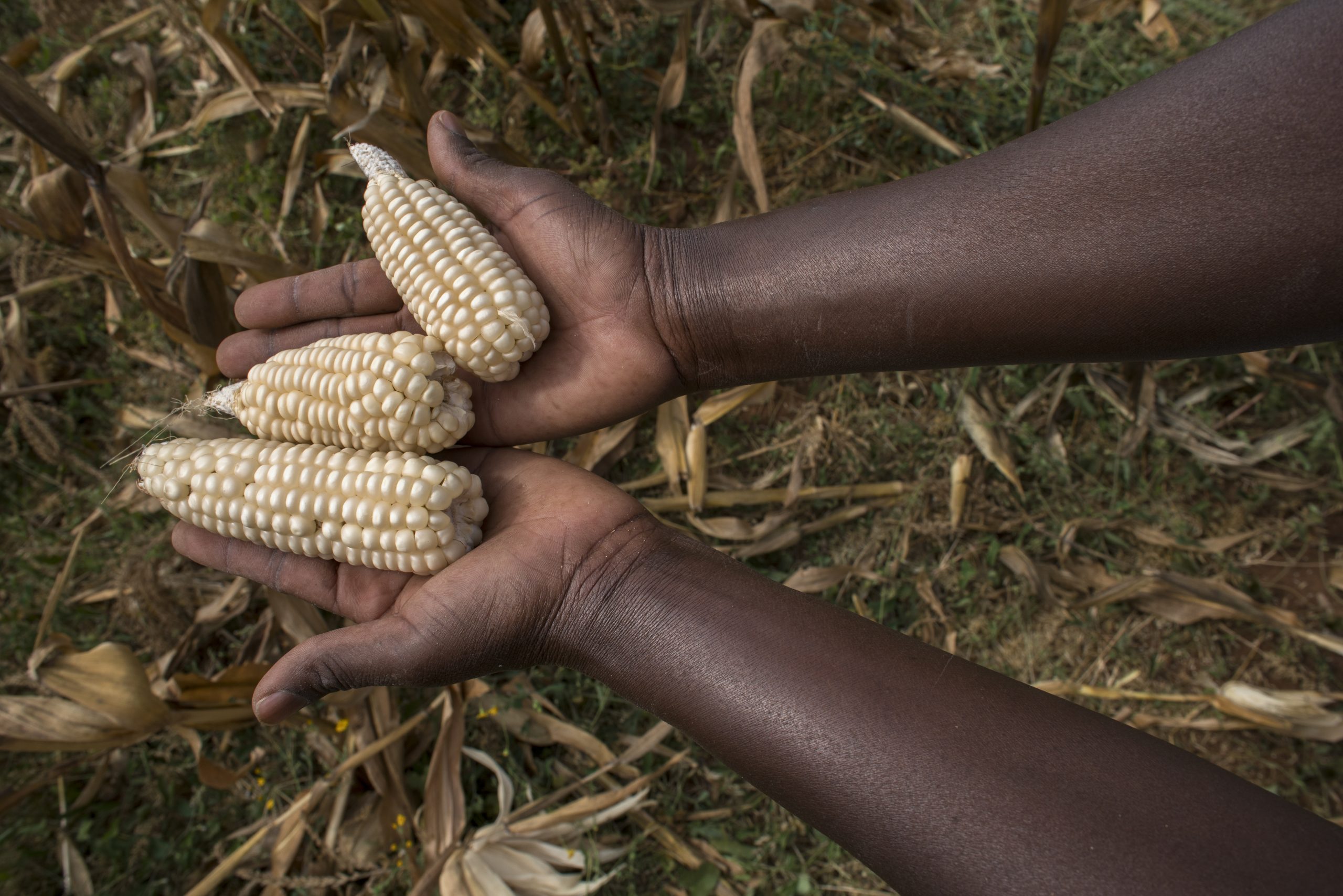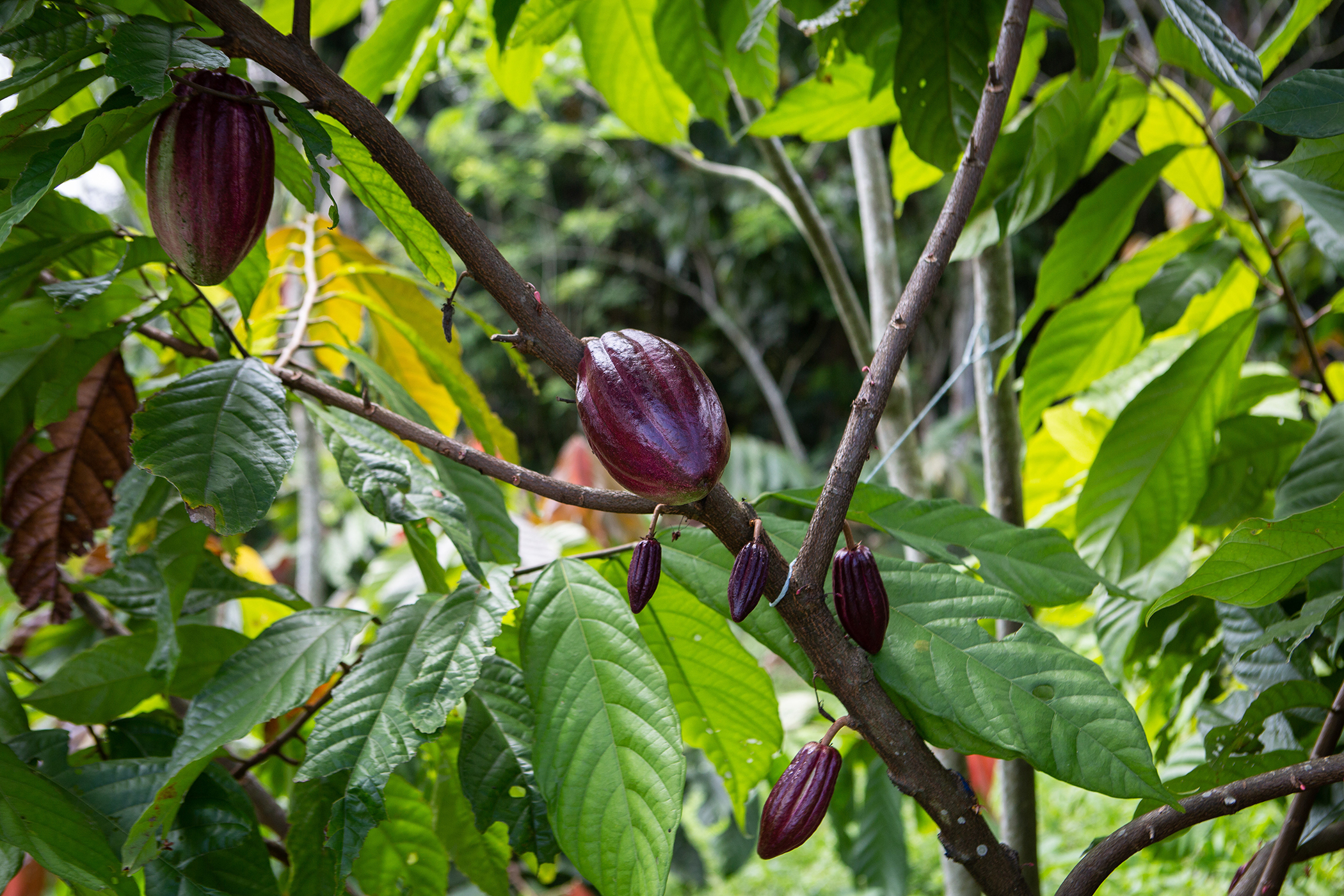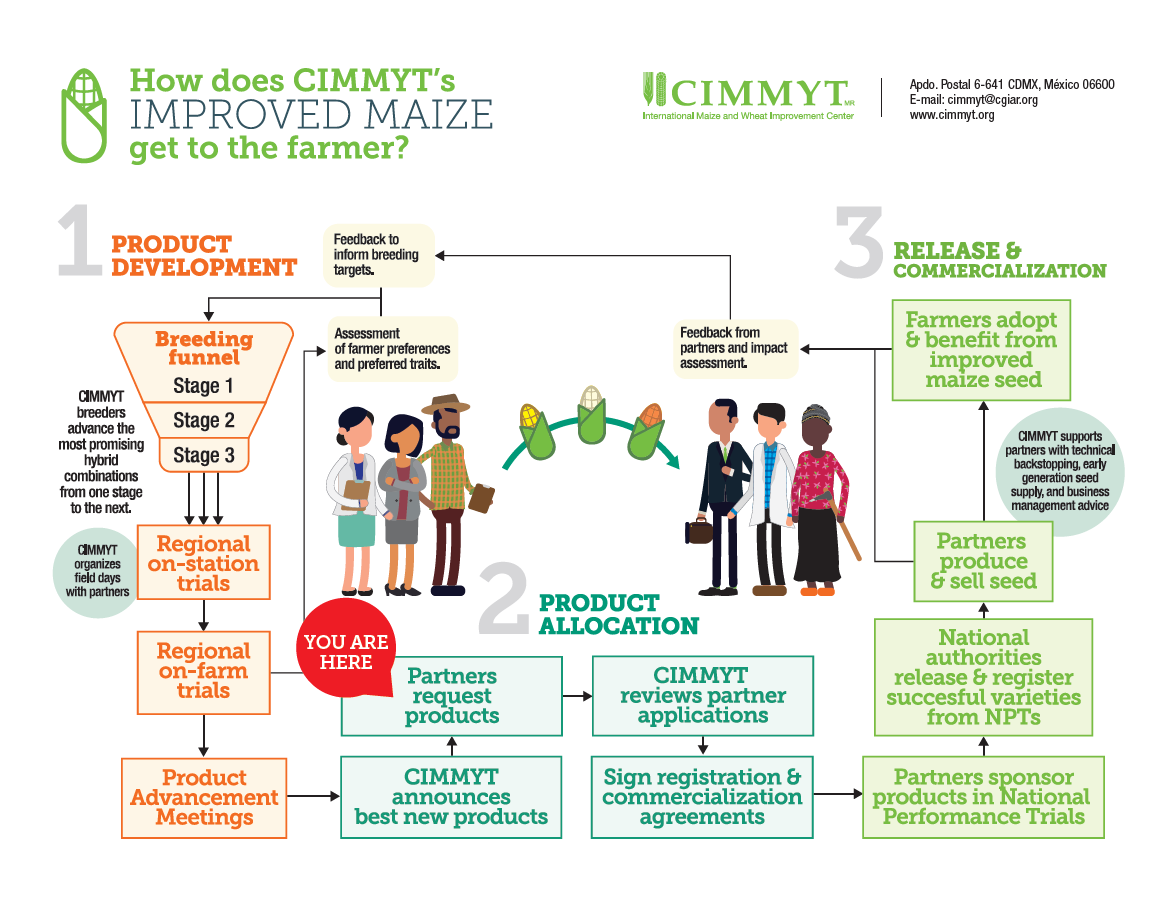Nutrition, health and food security
As staple foods, maize and wheat provide vital nutrients and health benefits, making up close to two-thirds of the world’s food energy intake, and contributing 55 to 70 percent of the total calories in the diets of people living in developing countries, according to the U.N. Food and Agriculture Organization. CIMMYT scientists tackle food insecurity through improved nutrient-rich, high-yielding varieties and sustainable agronomic practices, ensuring that those who most depend on agriculture have enough to make a living and feed their families. The U.N. projects that the global population will increase to more than 9 billion people by 2050, which means that the successes and failures of wheat and maize farmers will continue to have a crucial impact on food security. Findings by the Intergovernmental Panel on Climate Change, which show heat waves could occur more often and mean global surface temperatures could rise by up to 5 degrees Celsius throughout the century, indicate that increasing yield alone will be insufficient to meet future demand for food.
Achieving widespread food and nutritional security for the world’s poorest people is more complex than simply boosting production. Biofortification of maize and wheat helps increase the vitamins and minerals in these key crops. CIMMYT helps families grow and eat provitamin A enriched maize, zinc-enhanced maize and wheat varieties, and quality protein maize. CIMMYT also works on improving food health and safety, by reducing mycotoxin levels in the global food chain. Mycotoxins are produced by fungi that colonize in food crops, and cause health problems or even death in humans or animals. Worldwide, CIMMYT helps train food processors to reduce fungal contamination in maize, and promotes affordable technologies and training to detect mycotoxins and reduce exposure.
Three sisters and 120 sweet potatoes: Mexican farmers embrace Maya traditions
 Environmental health and biodiversity
Environmental health and biodiversity
Source: The Guardian (10 Jul 2023)
Maíz Criollo Kantunil, a group of farmers and agro-ecologists, has successfully reintroduced three varieties of native maize using seeds supplied by the International Maize and Wheat Improvement Center (CIMMYT).
Hot, dry, windy events on the rise in Kansas wheat fields
 Climate adaptation and mitigation
Climate adaptation and mitigation
Source: Succesful Farming (11 Jul 2023)
To dive into the challenges posed by climate change, researchers at the International Maize and Wheat Improvement Center, in Sonora, Mexico, are working to develop a range of wheat that can withstand extreme and unpredictable weather conditions.
MC Mühlenchemie presents the winners of the first Flour Innovation Award
 Capacity development
Capacity development
Source: Milling and Grain (4 Jul 2023)
International jury of renowned scientists and industry experts evaluate 23 research projects from four continents, awardees hail from South Africa, Ethiopia and Pakista
An Example of International Cooperation: China and CIMMYT
 Innovations
Innovations
Source: Science and Technology Daily (29 Jun 2023)
Awais Rasheed, an adjunct scientist at the International Maize and Wheat Improvement Center (CIMMYT), recently spoke to Science and Technology Daily about his pleasant experience working in China and the importance of international cooperation to address the global food security crisis.
Food security is a national security issue everywhere
 Climate adaptation and mitigation
Climate adaptation and mitigation
Source: Global Bar Magazine (13 Jun 2023)
Lindiwe Majele Sibanda, CGIAR Systems Board chair, lays out strategies that build on CGIAR’s investments in rural economies for more diversified and resilient food systems.
Healthy Eating Week 2023: Sustainably feeding a growing world
 Nutrition, health and food security
Nutrition, health and food security
CIMMYT continues to contribute to human health, productivity and sustainable agriculture through the production and consumption of healthy foods, reducing ecological impact and improving the nutrition of rural communities.
Science and partnerships are critical to reach G7 food security goals
 Nutrition, health and food security
Nutrition, health and food security
CIMMYT offers proven science and formidable partnerships to help achieve the recently stated G7 ambitions for global food security and nutrition.
Reviving Nepal’s agriculture
 Climate adaptation and mitigation
Climate adaptation and mitigation
Source: The Kathmandu Post (31 May 2023)
Mixed farming can boost food security and climate resilience. IWMI and CIMMYT are leading pilot efforts in Nepal to promote sustainable intensification of mixed farming systems (SIMFS).
Accelerating delivery of stress-tolerant, nutritious seed in Eastern and Southern Africa
 Nutrition, health and food security
Nutrition, health and food security
CIMMYT and partners are working to accelerate the delivery of stress-tolerant and nutritious seeds to boost smallholder farmer resilience to drought and pests in Malawi, Tanzania, and Zambia.
Startups, nonprofits race to unlock Africa’s agricultural potential as millions face food crisis and droughts
 Nutrition, health and food security
Nutrition, health and food security
Source: The Nairobi Law Monthly (9 May 2023)
Civil society actors are stepping up to strengthen Africa’s potential to prevent greater food insecurity and regional instability caused by climate impacts.
CIMMYT at the AIM for Climate Summit
 Climate adaptation and mitigation
Climate adaptation and mitigation
Smart smallholder fertilizer management practices to address food security and climate change.
2023: The International Year of the Millet
 Nutrition, health and food security
Nutrition, health and food security
Source: The EastAfrican (3 May 2023)
CIMMYT commits to scaling-up millet cultivation and further promoting technologies that encourage millet consumption and other dryland cereal crops.
Delivering transgenic drought-tolerant and insect-protected maize varieties to African farmers
 Nutrition, health and food security
Nutrition, health and food security
Source: Seed Quest (3 May 2023)
The TELA maize project has protected smallholder farmers from Stem-borer and Fall Armyworm through resistant maize varieties. As part of the project’s fifth year, the AATF has restated its commitment to developing transgenic drought-tolerant and insect-protected maize varieties.
Farmers on the Front Lines: Mexico’s Cacao Crops Are Recovering Thanks to Women Like This
 Capacity development
Capacity development
Source: Global Citizen (21 Apr 2023)
CIMMYT gender research helps the Agrovita program, a collaboration between PepsiCo and Proforest, a UK-based agriculture non-profit, to design and promote gender sensitive training programs for smallholder cacao farmers in Tabasco and Chiapas, Mexico.
Six New CIMMYT maize hybrids available from eastern Africa Breeding Program
 Climate adaptation and mitigation
Climate adaptation and mitigation




